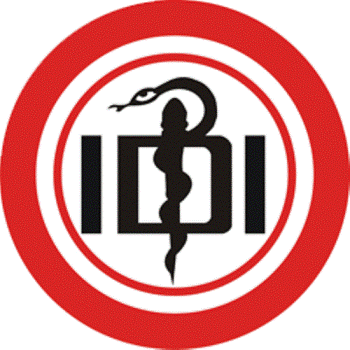| |||||||||||||||||||||||||
| | HARVARD GAZETTE ARCHIVES
Survey: Down syndrome diagnoses found wantingSeven specific recommendations offeredOne mother in the study reported that her genetic counselor "showed a really pitiful video first of people with Down syndrome who were very low tone and lethargic-looking and then proceeded to tell us [in 1999] that our child would never be able to read, write, or count change." The study was conducted by Brian Skotko, a student at Harvard Medical School (HMS) and Harvard's John F. Kennedy School of Government, and supported by the Tim White Fund from Children's Hospital Boston and a part-time research grant from HMS. Skotko mailed an 11-page survey to nearly 3,000 members of five Down syndrome parent organizations in California, Colorado, Massachusetts, North Carolina, and Rhode Island. Of the 1,250 responses, approximately 140 were from mothers who had received a definitive prenatal diagnosis through amniocentesis or chorionic villus sampling (CVS). "Doctors continue to find it very challenging to deliver a diagnosis like Down syndrome to an otherwise happy expectant mom," says Skotko, who has a 24-year-old sister with Down syndrome and co-authored the award-winning book "Common Threads: Celebrating Life With Down Syndrome" (Band of Angels Press). "But the results of this study are conclusive: Delivering a prenatal diagnosis of Down syndrome does not have to be a gloomy affair. In fact, mothers in this study have now written the prescription on how best to explain the diagnosis in a loving manner." Based on the mothers' comments, Skotko offers a seven-point "prescription" for communicating a diagnosis of Down syndrome: Skotko published a companion paper in the January issue of Pediatrics summarizing responses from women who received the Down syndrome diagnosis postnatally. He also has conducted the same pair of studies in Spain to get a cross-cultural perspective. Allen Crocker, Skotko's faculty adviser on the project and director of the Down Syndrome Program at Children's Hospital Boston, says that the survey findings echo his nearly 40 years of experience working with families. ''Physicians have consistently been inadequate and incomplete, and, on occasion, offensive,'' he says. ''These two studies offer the most searching review of parents' experiences of postnatal and prenatal presentation of a diagnosis of Down syndrome ever published, and they have been done with considerable statistical care. This is clearly a case of families teaching physicians.'' Approximately one of every 1,000 children in the United States is born with Down syndrome, meaning that approximately 5,000 parents receive the diagnosis for their child each year. Of the mothers who receive the diagnosis, about 12.5 percent find out before birth, suggesting that 625 newborn infants with Down syndrome will be diagnosed prenatally each year. All pregnant women over the age of 35 are now offered prenatal testing for Down syndrome, and younger women are increasingly requesting such tests on their own. Typically, although not necessarily, mothers will begin with a prenatal screening test like the triple screen, quadruple screen, or the newest combination of two maternal serum markers and ultrasonographic findings. With a 5 percent false-positive rate, 69 percent of fetuses with Down syndrome are correctly detected with triple screening, 75 percent with quadruple screening, and 79 percent with the recent first-trimester screening involving two maternal serum protein markers and ultrasonographic findings. For a definitive prenatal diagnosis, mothers have one of two options: chorionic villus sampling, typically between the 10th and 12th weeks of pregnancy or amniocentesis, typically after the 15th week of pregnancy. Neither procedure, however, is without risk; both carry an approximately 0.35 percent to 0.30 percent additional chance of causing a spontaneous miscarriage. | |||||||||||||||||||||||
BLOG DOKTER SPESIALIS KEBIDANAN DAN PENYAKIT KANDUNGAN ( Obstetric's & Gynecologist Blog ) Sumatera Barat.,Indonesia
SAVE YOUR BABY'S, SAVE NEXT GENERATION'S
SAVE YOUR BABY'S, SAVE NEXT GENERATION'S
Search This Blog
- Universitas Andalas Website
- TRIGEMINAL NEURALGIA LECTURES AND TREATMENT
- Maternal and Child :Research and Article
- dr Firman. Abdullah SpOG/ OBGYN .Personal Edition
- dr Firman Abdullah SpOG / ObGyn.com
- Dr Djohanas Djohan Abdullah Memorial Hospital.com
- Bukittinggi International Hospital.com
- Aliansi Rakyat Anti Korupsi Bukitinggi.com
Jam Gadang.Bukittinggi. Sumatera Barat .Indonesia
24.jpg)

Bung Hatta statue ,Bukittinggi
About me.....
IKATAN DOKTER INDONESIA (IDI).Sumatera Barat

INDONESIAN MEDICAL ASSOCIATION
ASSALAMUALAIKUM........
dr Firman Abdullah SpOG / OBGYN
Peer - Review..Cyberounds
Blog Archive
-
►
2008
(1)
- ► March 2008 (1)
-
▼
2009
(387)
- ► April 2009 (87)
-
▼
August 2009
(54)
- Control your DNA destiny Genes aren?t the boss o...
- Best care for babies comes from healthy moms
- Herbal 'remedy' may be hazardous during pregnancy
- Eating Right When Pregnant
- AIR TRAVEL IN PREGNANCY
- Air Travel During Pregnancy
- Changes in diet and lifestyle may help prevent inf...
- Survey: Down syndrome diagnoses found wanting
- 6 myths about pregnancy
- City’s First Public Cord Blood Donation Program Opens
- Systemic Lupus Erythematosus (Lupus)
- Largest study of Vitamin D and Omega-3s set to beg...
- What is Alzheimer's
- Guillain-Barré Syndrome Associated with Cytomegalo...
- The Changing Concepts of Guillain–Barré Syndrome
- Cytomegalovirus as a frequent cause of Guillain-Ba...
- Cytomegalovirus infection and Guillain-Barré syndr...
- Pathogenesis of Guillain-Barré syndrome.
- Infection, vaccines and other environmental trigge...
- The role of infections in autoimmune disease.
- Northwestern University NewsCenter RSS Feeds , New...
- H1N1 Flu (Swine Flu) Information for Health Care P...
- Cytomegalovirus and systemic lupus: Severe infecti...
- Treatment of children with congenital cytomegalovi...
- Treatment of congenital cytomegalovirus: where are...
- Cytomegalovirus infection in pregnancy
- Congenital cytomegaly--advances in diagnosis and t...
- Campylobacter jejuni HS:23 and Guillain-Barré Synd...
- Reducing stillbirths: behavioural and nutritional ...
- Mother’s stress level can damage unborn baby’s brain
- Duration of sexual relationship and its effect on ...
- Obstetrical prognosis and pregnancy outcome follow...
- Human Cytomegalovirus Seroprevalence and Risk of S...
- UN General Assembly Resolution on Promotion and Pr...
- Maternal Mortality Campaign letter signed by FIGO ...
- Progress on health-related Millennium Development ...
- Saving Mothers & Newborns
- Heart Risks Rise With Smokeless Tobacco
- Learn the Signs. Act Early.
- Tips for Summer Depression
- Cesarean Delivery on Maternal Request: the Impact ...
- Newborn hearing screening: will children with hear...
- Hearing loss in children with congenital cytomegal...
- 10-year prospective study of sensorineural hearin...
- Efficacy and safety of cesarean delivery for preve...
- The Menopause Diet
- How to Reduce High Cholesterol With Exercise
- Chinese herbal medicine for endometriosis
- Danazol for uterine fibroids
- CMV IMMUNE GLOBULIN - INTRAVENOUS (CMV ih-MYOON GL...
- Cytomegalovirus Immune Globulin Intravenous, Human...
- Endometriosis In-Depth Report
- Swine flu around.. Don’t panic, there is a solution
- Recharge Your Sex Life
- ► September 2009 (21)
- ► November 2009 (4)
- ► December 2009 (11)
-
►
2010
(45)
- ► January 2010 (6)
- ► February 2010 (11)
- ► March 2010 (1)
- ► April 2010 (7)
- ► November 2010 (2)
-
►
2011
(4)
- ► February 2011 (2)
- ► March 2011 (2)
FEEDJIT Live Traffic Feed
Discussion Board
FEEDJIT Live Traffic Map
FEEDJIT Recommended Reading
FEEDJIT Live Page Popularity
dr Firman Abdullah SpOG / OBGYN

Sunday, August 2, 2009
Survey: Down syndrome diagnoses found wanting
Subscribe to:
Post Comments (Atom)
BMI CALCULATOR
ACHMAD MOCHTAR GENERAL HOSPITAL BUKITTINGGI

RUMAH SAKIT ACHMAD MOCHTAR BUKITTINGGI
Firman Abdullah Bung
drFirman Abdullah SpOG / ObGyn

KELUARGA BESAR TNI-AD
Dr Firman Abdullah SpOG/ OBGYN, Bukittinggi, Sumatera Barat ,Indonesia
Bukittinggi , Sumatera Barat , Indonesia

Balaikota Bukittinggi
dr Firman Abdullah SpOG / OBGYN

Ngarai Sianok ,Bukittinggi, Sumatera Barat.Indonesia

Brevet in Specialist Obstetric's & Gynecologist 1998

dr Firman Abdullah SpOG/ObGyn


Dokter Spesialis Kebidanan dan Penyakit Kandungan . ( Obstetric's and Gynaecologist ) . Jl.Bahder Johan no.227,Depan pasar pagi ,Tembok .Bukittinggi 26124 ,HP:0812 660 1614. West Sumatra,Indonesia
Sikuai Beach ,West Sumatra ,Indonesia


Fort de Kock, Bukittinggi












No comments:
Post a Comment